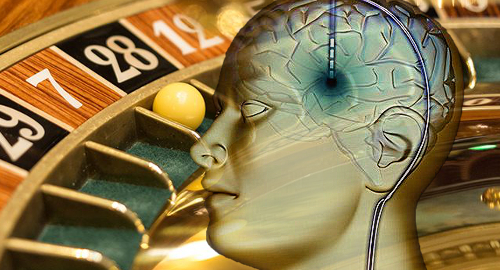Researchers have identified signals in the brain that predict impulsive behavior before it occurs, raising the possibility that targeted electrical stimulation could reduce or eliminate problem gambling activity.
On Monday, the Proceedings of the National Academy of Sciences (PNAS) published the findings of a Stanford University School of Medicine study that identified “a real-time biomarker for impulsive behavior,” according to Casey Halpern, MD, the study’s senior author.
The researchers identified this marker by introducing a new high-fat food pellet into the diets of mice, then giving the mice a one-hour window per day in which they could eat all the high-fat pellets they wanted. In time, the mice were spending the entire hour gorging themselves on the tasty treat.
Using implanted electrode arrays in the mice brains, the researchers detected heightened electrical activity in the nucleus accumbens – a key player in the brain’s reward circuitry – immediately before the mice began their daily one-hour binge-fest. Similar reactions weren’t evident when the mice were presented with their normal food supply.
